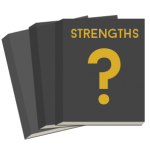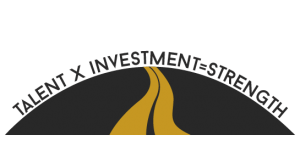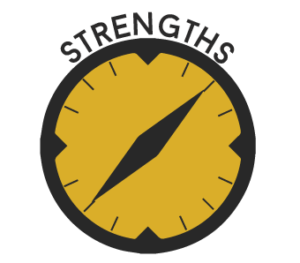I need to take CliftonStrengths for a class. How do I do that?

Students should e-mail strengths@missouri.edu or connect with our staff through the MU Career Center. We give assessments from 9 a.m. to 4 p.m, Monday through Friday. It should be $15 unless your instructor has told you otherwise.
Faculty and staff should e-mail careeroutreach@missouri.edu with their request and we will arrange for payment ($15 per person).
I am interested in having a group of students take CliftonStrengths for Students. How should I proceed?
Complete this request form. Be sure to make your requests at least two weeks in advance so we have time to process your request. A Career Education Response Team consultant should respond to your initial request within several business days.
I took CliftonStrengths for Students in the last several years. How do I access my results?
If you took CliftonStrengths through the MU Career Center prior to Fall 2021, go to the CliftonStrengths homepage and log in using your email address and password. The Signature Theme Report contains your CliftonStrengths assessment results. If you do not remember your password, do not recall the e-mail address you used, or have other concerns, visit Gallup’s Help Center page for instructions on how to continue.
If you took CliftonStrengths in Fall 2021 or after, you can find the link your results at the top of your e-mailed receipt, in the follow-up e-mails you received from Gallup describing each of your top five talent themes, or e-mail strengths@missouri.edu and we can help you find your results.
If you are still having trouble accessing your results, e-mail us at strengths@missouri.edu.
What’s the difference between a talent and a strength?
Talents are qualities that individuals are innately good at and are natural ways of thinking, feeling, and behaving. When you take the CliftonStrengths assessment, it will tell you your top five talent themes out of a possible 34. As you invest time and energy in applying those five talent themes, they will turn into Strengths.
I am interested in learning more about how to apply my talents to my life. Where can I find more information?

You’ve come to the right place! We have activities and resources on this website for both students and faculty/staff. Also, feel free to come into the MU Career Center to have a conversation with a Career Specialist for more ideas about using your talents in your career development and planning process.
Will taking CliftonStrengths for Students help me decide on a career or major?
CliftonStrengths for Students will not tell you what career to pursue. However, knowing your unique talents can help you to seek out opportunities to excel and can help you in job search process through interviewing, resumes, etc. Your talents can also help you to determine what type of role would be a good fit for you based on your talents and where you fit into the Four Leadership Domains. There are also Career Action item Sheets located on the individual profile pages at the MU Career Center and in the Strengths Insight and Action Planning Guide to help you use your talents in the career planning process.
What is the theory that CliftonStrengths for Students is based on?
CliftonStrengths for Students was developed out of a framework of positive psychology and studying what makes people successful and happy. Research shows that employees who knew what their Strengths were and used them daily tended to much more satisfied and successful. Further information and technical reports can be found about the validity of CliftonStrengths can be found on Gallup’s website.
Will my talents change?
 Since your talents are natural patterns of thinking, feeling, and behaving, it is likely that they will remain consistent. However, for some people who take CliftonStrengths several years apart (such as during their freshman and senior years), it is possible for several of your talent themes to remain the same and for a couple to change. Those were likely talents that were in your top 10 previously, but you have implemented those more in your life recently.
Since your talents are natural patterns of thinking, feeling, and behaving, it is likely that they will remain consistent. However, for some people who take CliftonStrengths several years apart (such as during their freshman and senior years), it is possible for several of your talent themes to remain the same and for a couple to change. Those were likely talents that were in your top 10 previously, but you have implemented those more in your life recently.
How do I address my weaknesses?
It is more productive to focus on your talents since it is easier to go from good to great than to work on your areas of weakness only to be mediocre at those things. If you do have areas of weakness, how can you use your talents to overcome those? For example, someone may have Strategic in their top five but does not have Harmony. If there is a conflict between team members, the individual could use their Strategic talent to determine how to get the team members to work together and accomplish their goal.
While each talent has benefits, there can also be a “shadow side.” For example, an individual who has Deliberative is adept at researching and making thoughtful decisions. However, if that person is experiencing stress or not using their talent in a healthy way, a shadow side might be that they are indecisive and delay making a decision since they need more information.
Why can I only see my top five?
Gallup suggests that individuals can make greater strides by focusing on a more select number of talents to really develop and intentionally use in your life rather than having a list with all 34 talents.
How likely is it that someone else has my same five talents?
As Gallup reports, the likelihood that another person has the same five talent themes is 1 in 278,000. The likelihood of meeting another person with the same five talents in your exact order is 1 in 33 million.